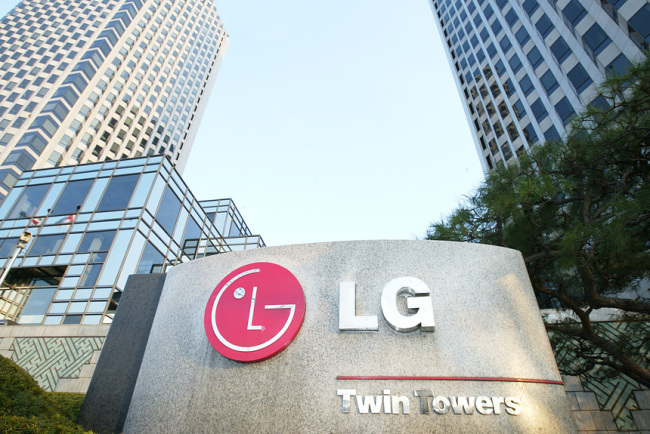Deals
Ready, set, binge: LG looks to change course with M&As
LG Electronics CEO Jo Seong-jin recently conceded that as a newcomer in the mergers and acquisitions market in 2015, the firm had a tough time acquiring a stake in family-owned Austrian headlight maker ZKW Group.
After years of negotiations, the tech giant and its holding firm LG Corp. were finally able to purchase shares worth 1.1 billion euros ($1.25 billion) in April 2018. It marked the largest acquisition in its 70-year history. Before that, it was focusing on research and development.
Now, market watchers speculate that the conglomerate will engage in more such acquisitions to focus on autonomous cars. It also will sell noncore assets to procure the ammunition for such deals.
 |
At the Consumer Electronics Show in January, Jo said LG is eyeing to acquire around 50 firms. In other signs, its key subsidiaries are moving to offload business units that are not a part of its core competence, while M&A experts have been placed in key positions at the holding company.
Storing up ammunition
Since the ZKW Group acquisition, LG Group has been looking to offload noncore subsidiaries and real estate assets in a move that could help it secure capital to finance acquisitions.
In February, it sold a 60 percent stake in maintenance and repairs firm Serve One to Hong Kong-based private equity firm Affinity Equity Partners for 602 billion won ($529.92 million). Serve One’s parent company is S&I, which is wholly owned by LG Corp.
LG also plans to liquidate Ohio-based LG Fuel Cell Systems. The joint venture with UK firm Rolls-Royce has already shut down its operations in Ohio. LG invested some 300 billion won in it, including a 51 percent stake for 52.3 billion won in 2012.
The company is now rumored to be attempting to sell its water quality engineering subsidiary Hientech, along with its stake in LG-Hitachi Water Solutions. The two deals are speculated to fetch a combined 500 billion won.
For more cash in exchange for noncore industrial properties, LG has been searching for a partner real estate consulting firm since February.
A company spokesperson said the sell-offs were designed to brace for South Korean authorities’ push for tougher rules on holding firms’ intra-group trading.
For example, LG sold off its MRO arm because 4 out of 5 of its dealings were with other subsidiaries. Under the current antitrust law, a holding firm with over 50 percent owned by a family cannot hold a subsidiary that focuses on intra-group contracts.
The Fair Trade Commission last year tabled a bill that lowers the regulatory cap with regarding family ownership -- to 20 percent -- to which LG would be subject. The spokesperson said such offloading is a “preemptive measure” before the bill is passed by parliament.
Ready to pounce
On the acquisition front, LG Chem is considering buying auto part maker Unimag Korea. In Germany, the firm is mulling bidding for BASF-affiliated Solvay’s intermediate and engineering plastics business.
Previously, it bought reverse osmosis membrane maker NanoH2O in 2014, fertilizer maker Farm Hannong in 2016 and adhesive maker Uniseal in 2018.
Another reason LG has become a more avid buyer is because it can take advantage of some 600 billion won of revenue each month from royalty and dividends from its subsidiaries, Yang Ji-hwan, an analyst at Daishin Securities, told The Investor.
“As a result, LG is expected to become more active in the M&A market starting this year,” he added.
The firm announced in November that it hired Hong Bum-shik, who was serving as the head of Bain & Co. Korea since 2014, as president of LG Corp. He supervised numerous deals managed by the consulting firm.
Another key personnel contributing to LG’s M&A capability is said to be Kwon Young-soo, chief operating officer and vice chairman of LG Corp., who had experience in previous deals of the firm.
No additional M&A experts have been recruited since Hong took the post, according to LG.
By Son Ji-hyoung (consnow@heraldcorp.com)






![[From the Scene] Gigantic Olive Young store lures young trend-setters in Seongsu](http://res.heraldm.com/phpwas/restmb_idxmake.php?idx=151&simg=/content/image/2024/11/21/20241121050065_0.jpg)

